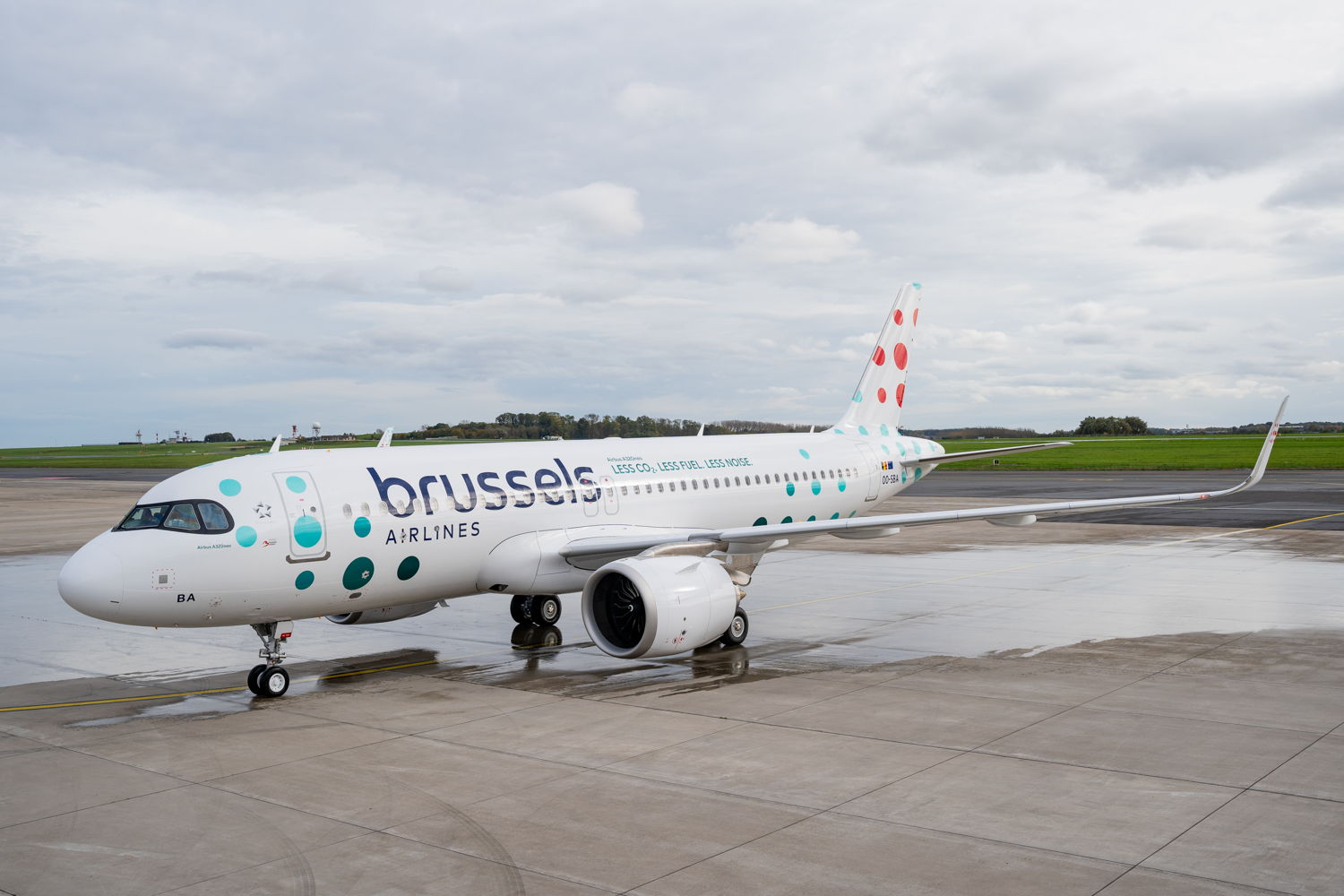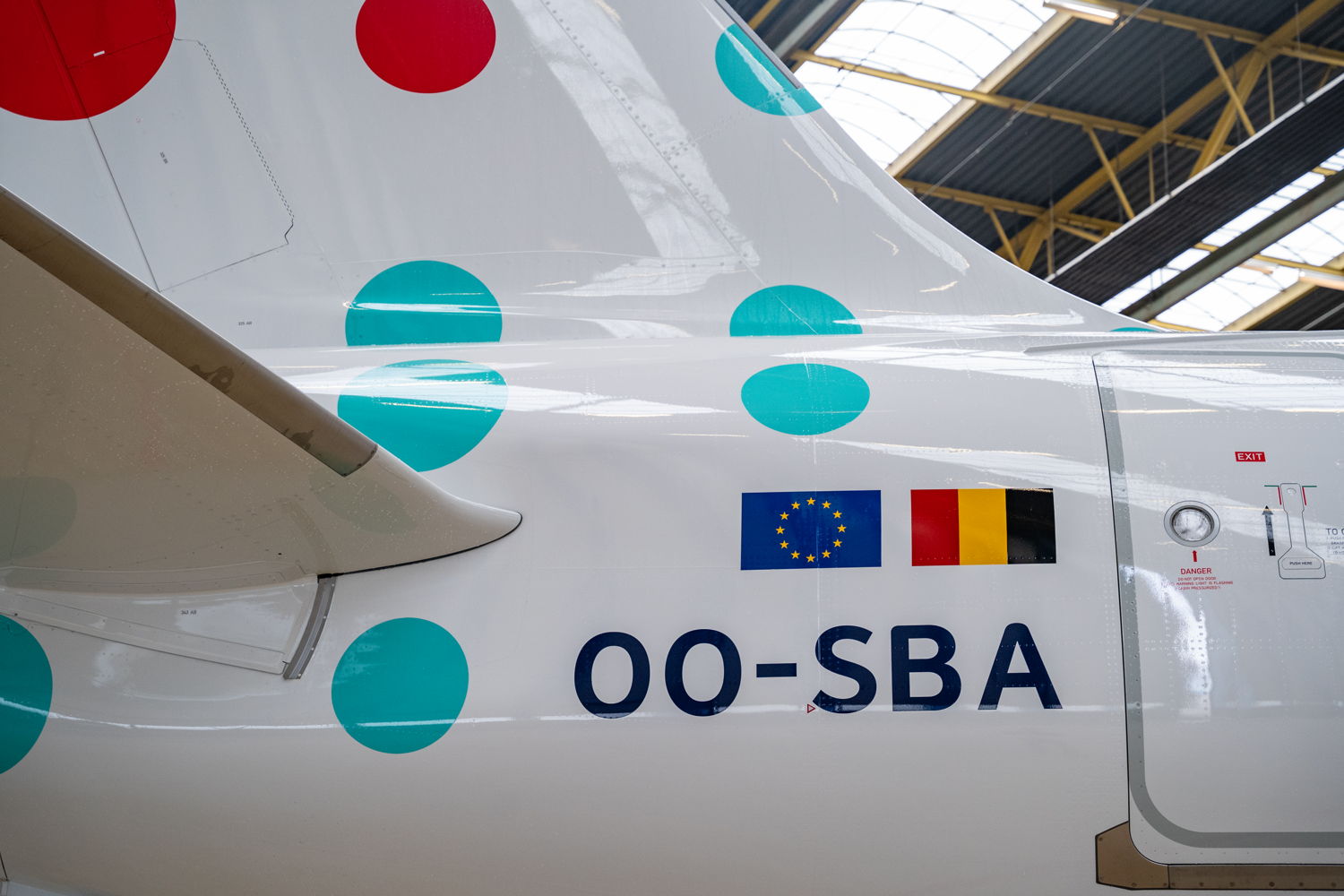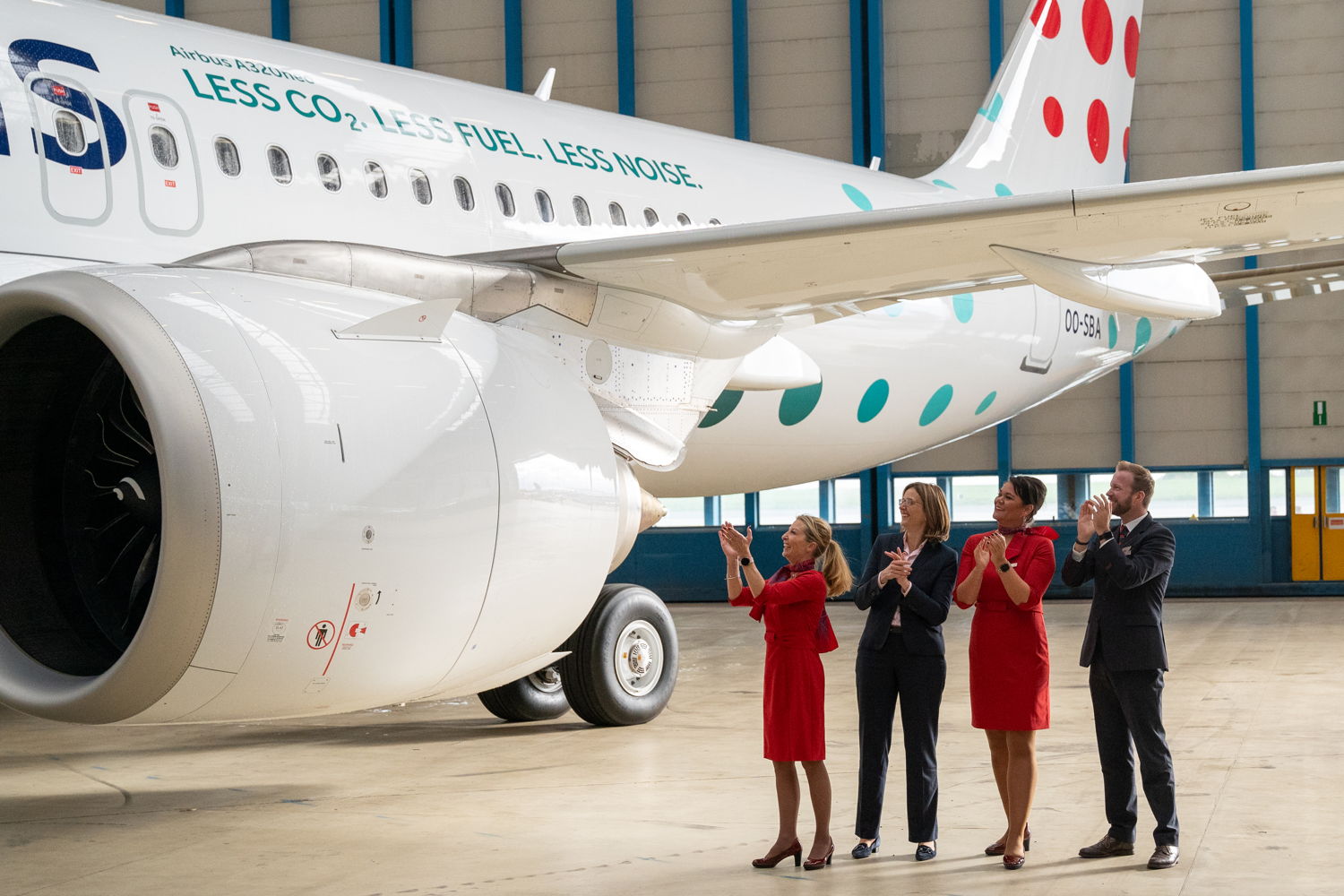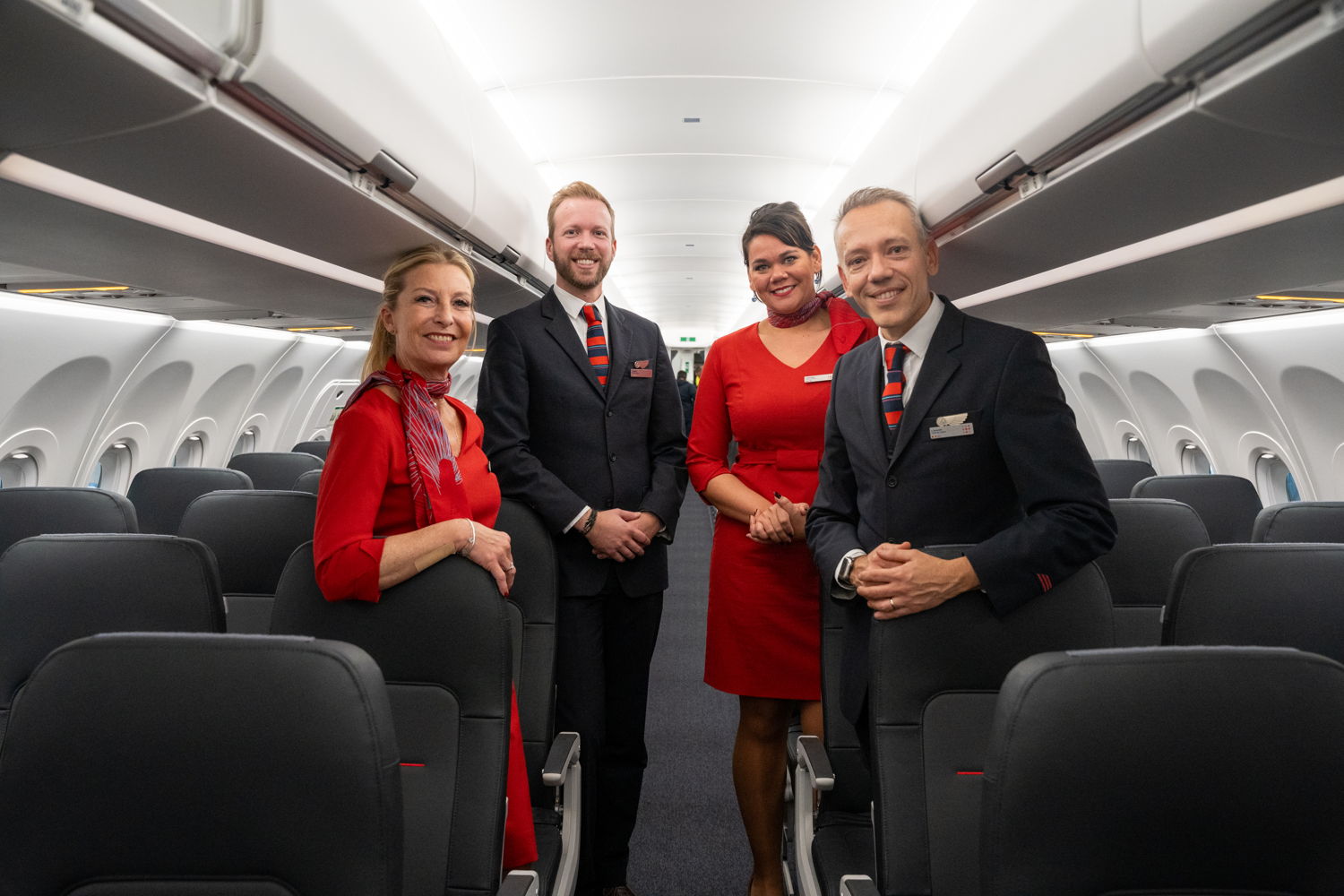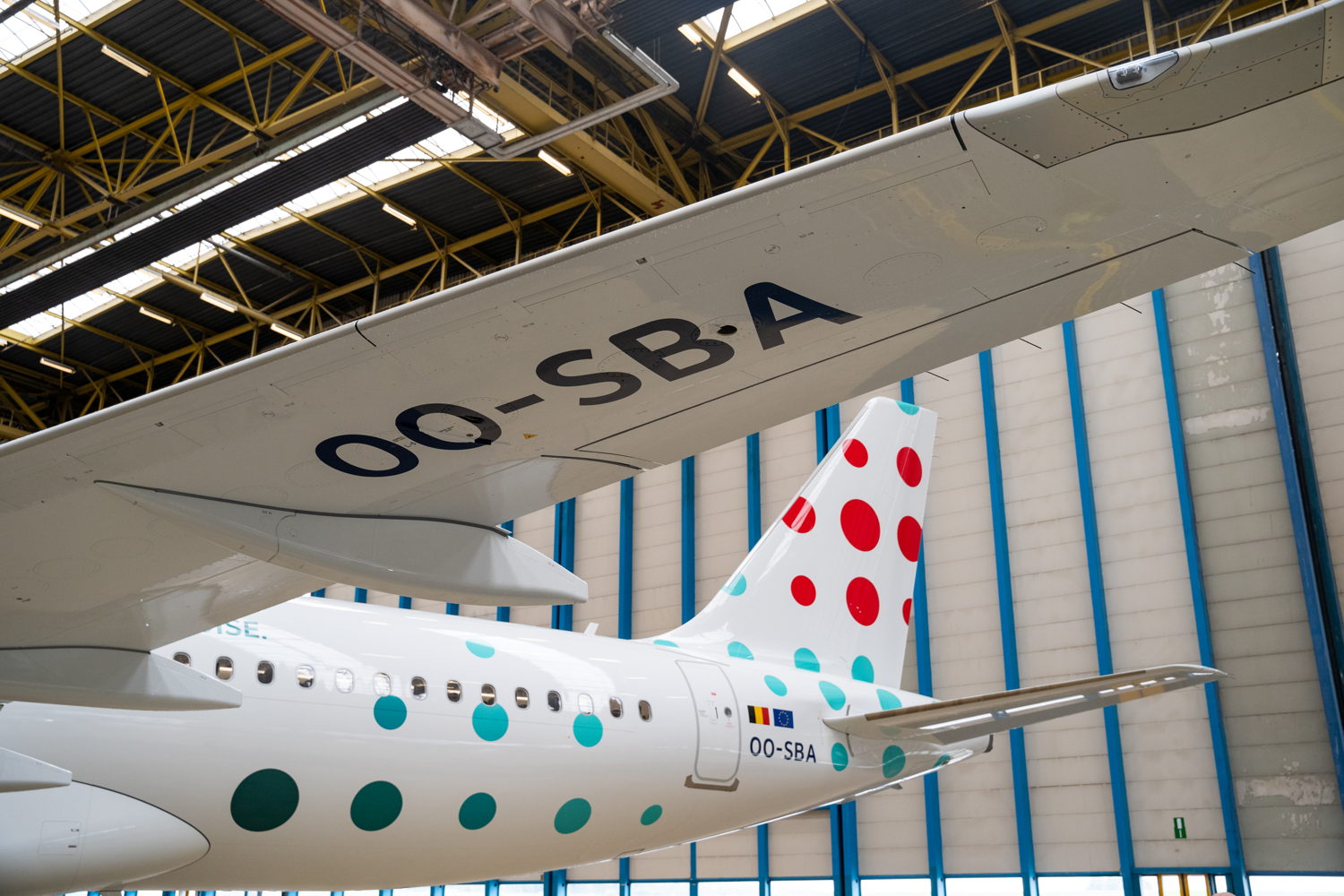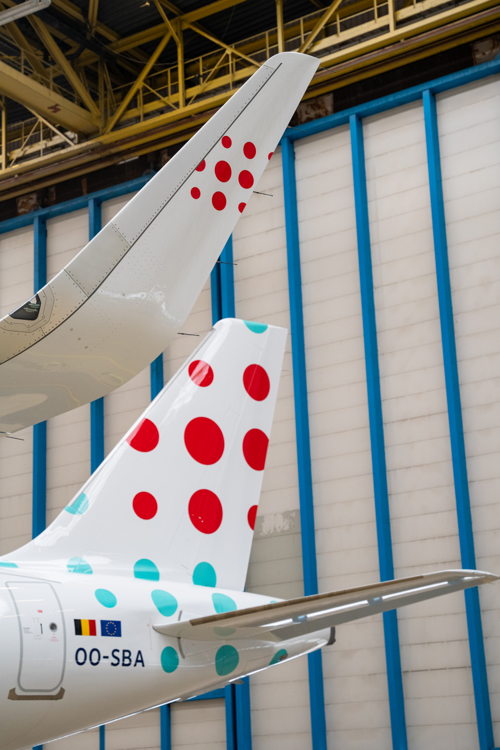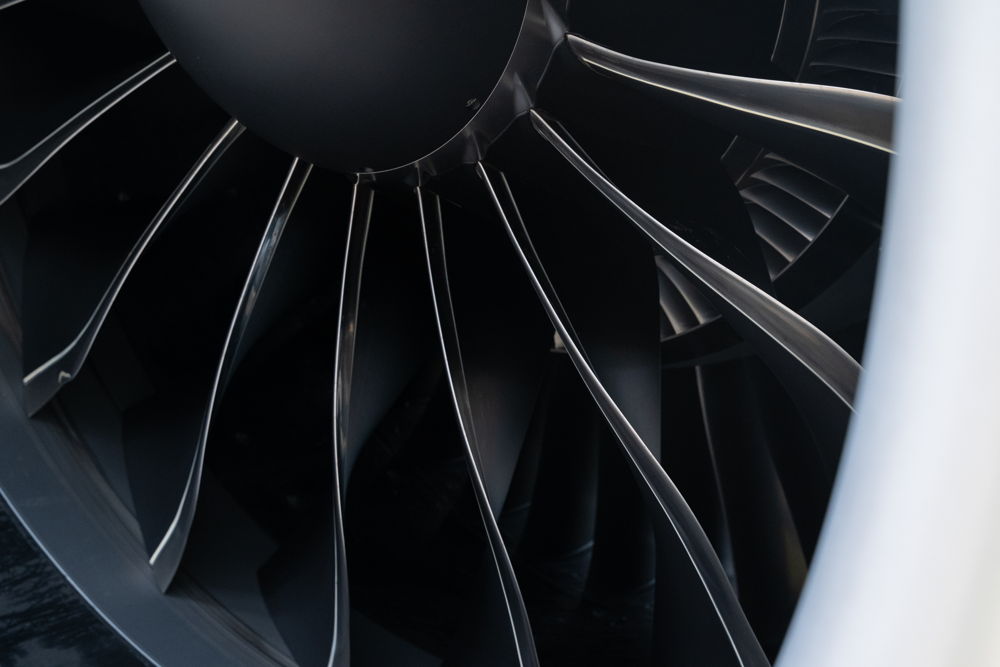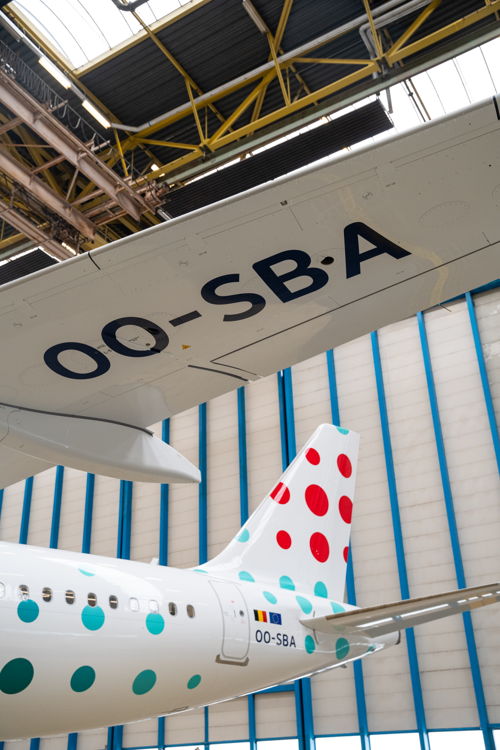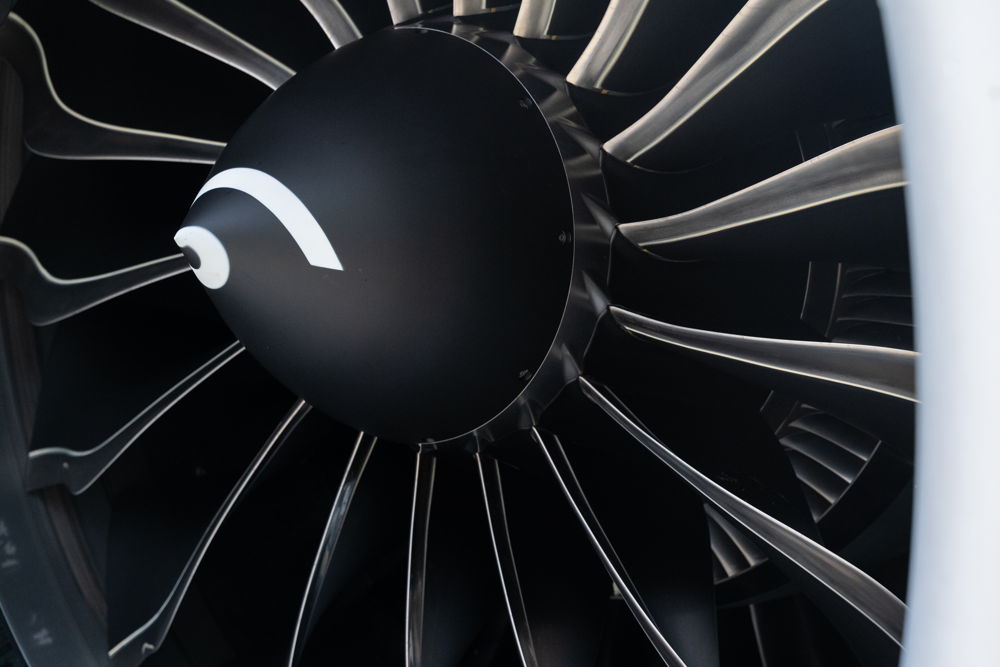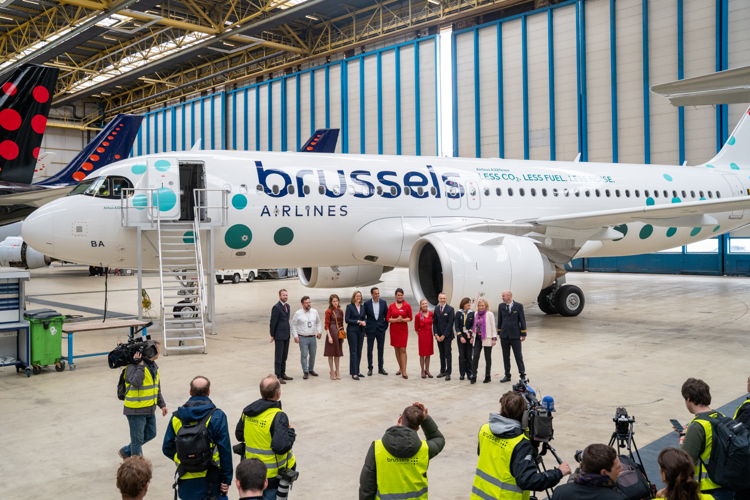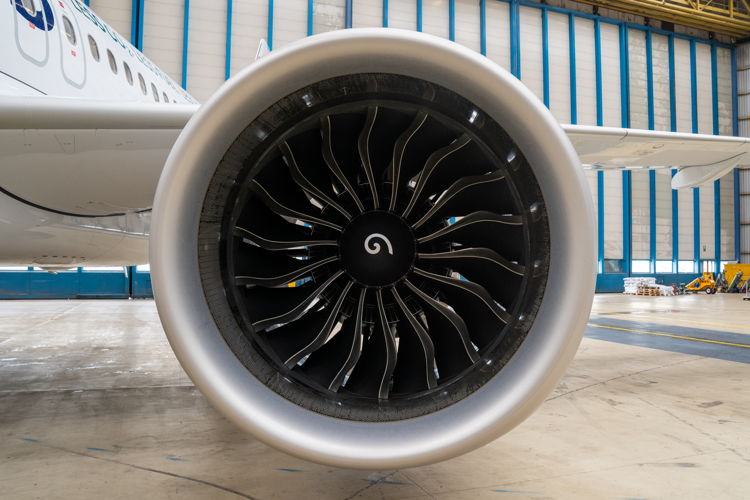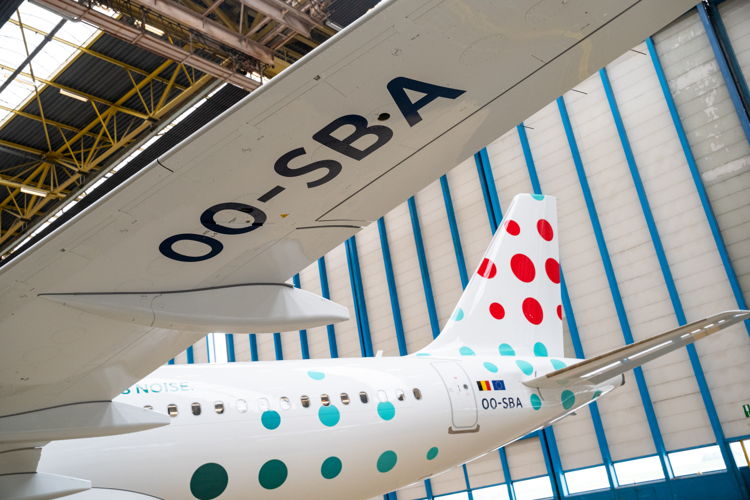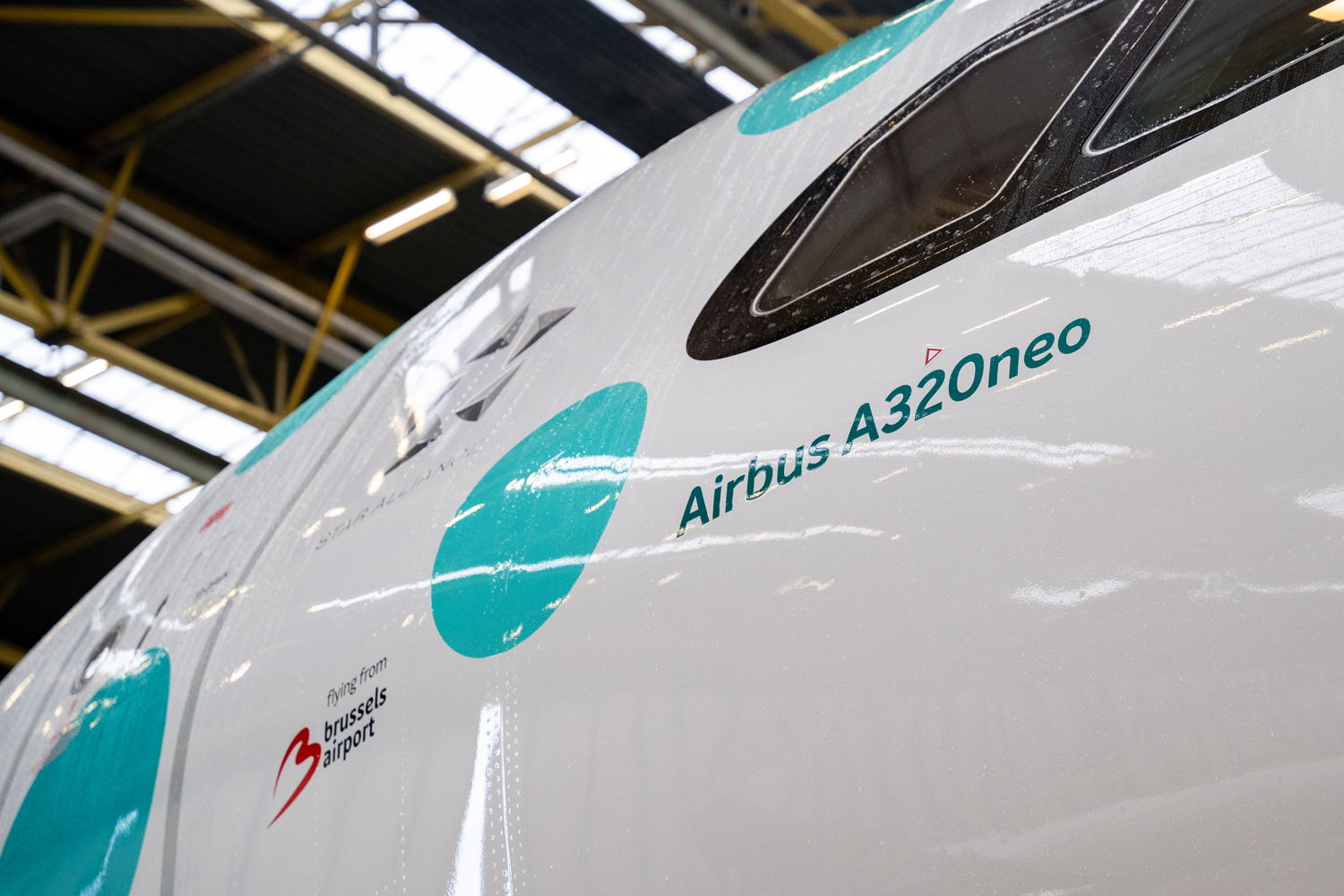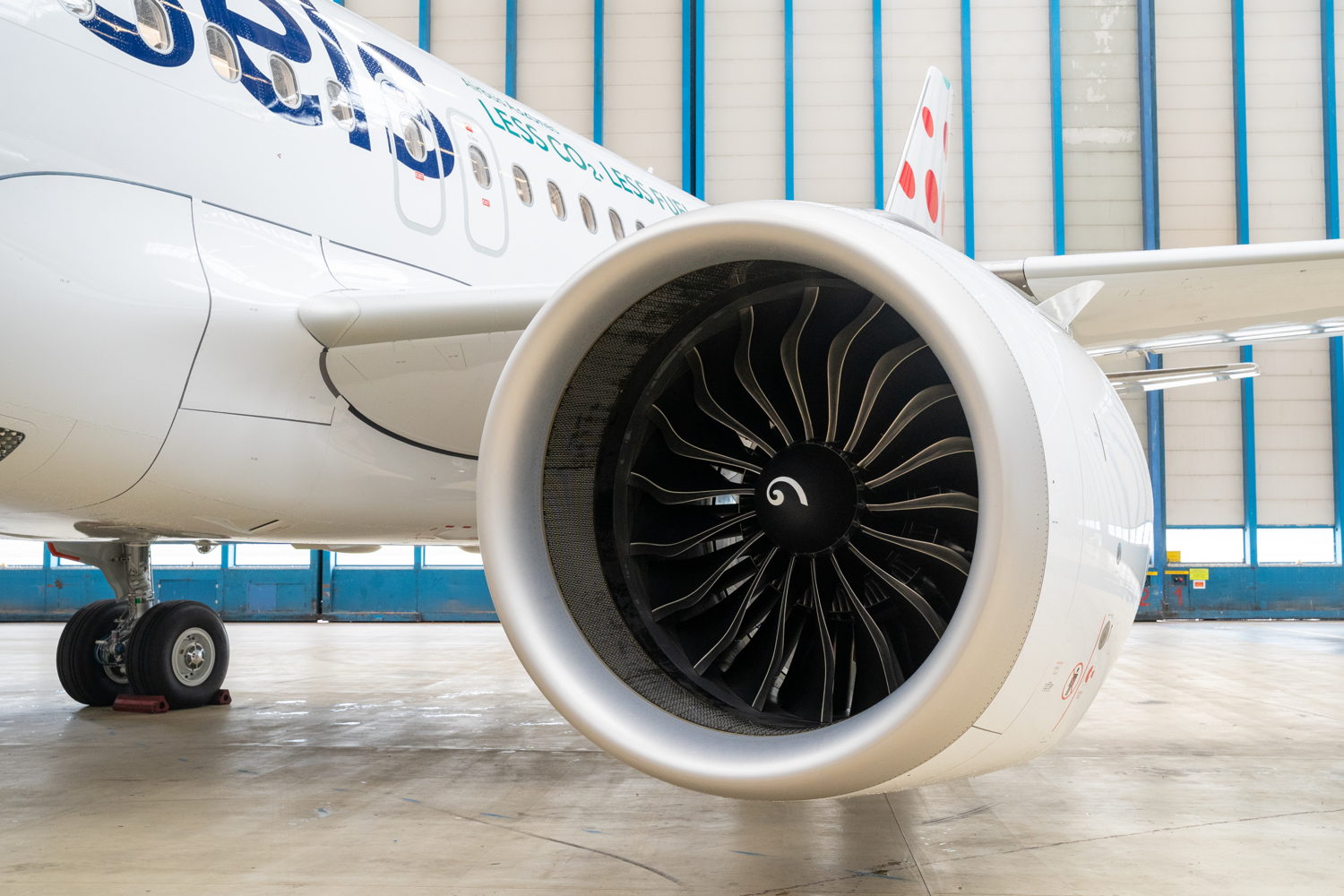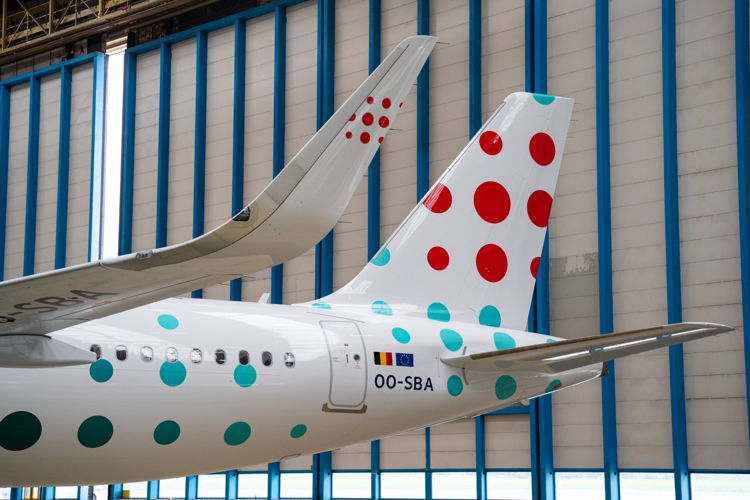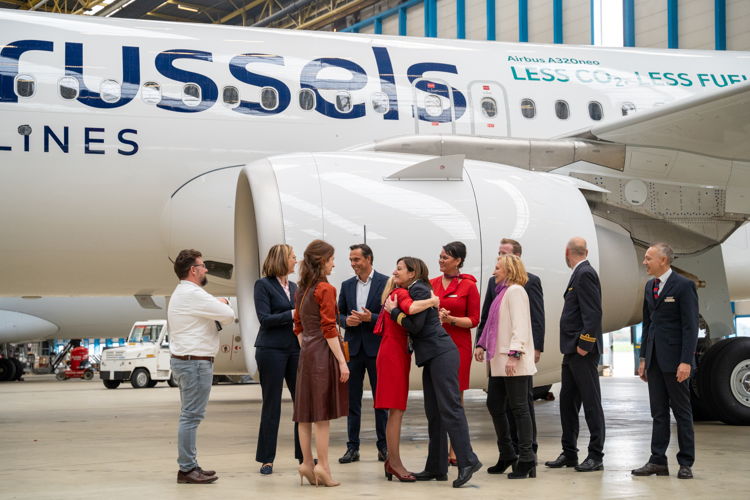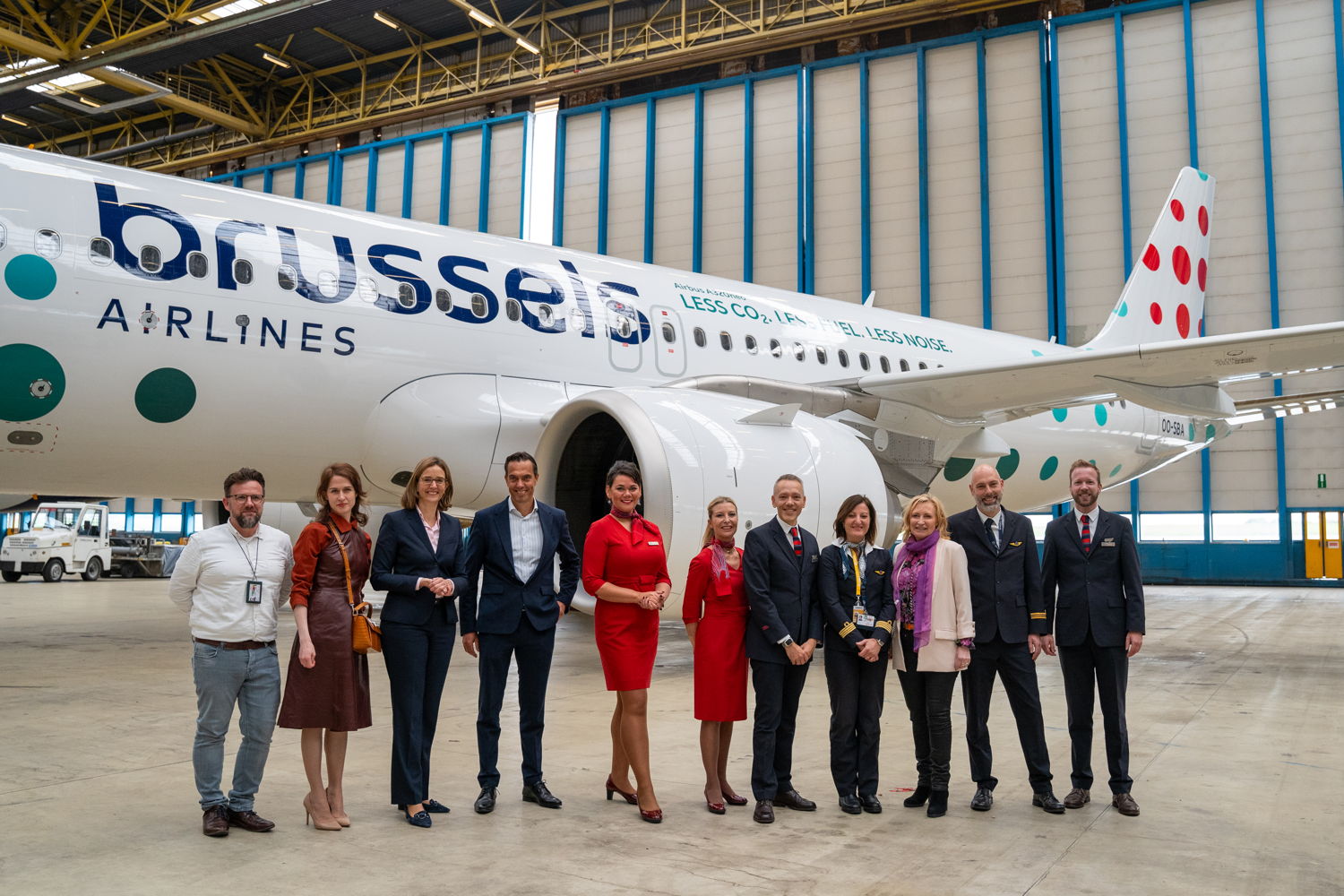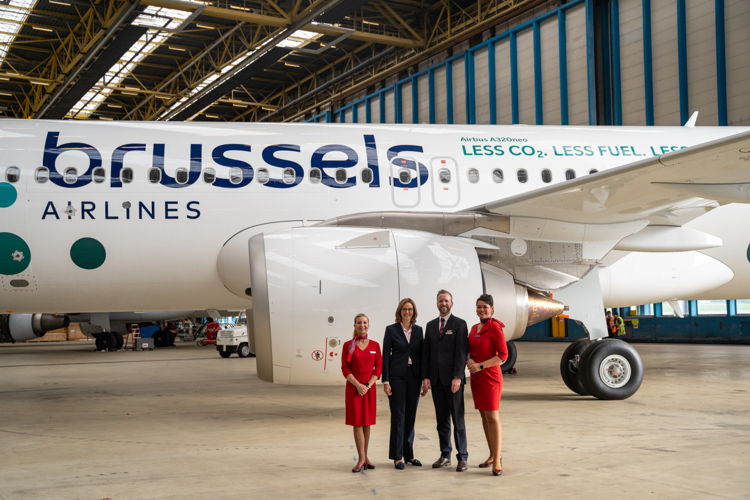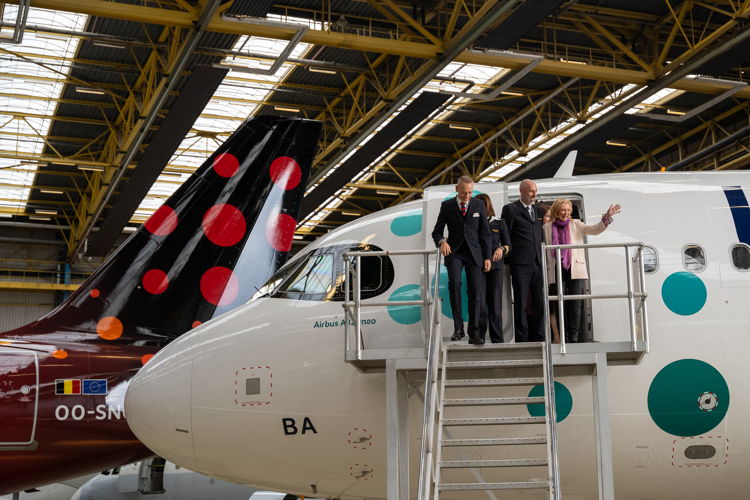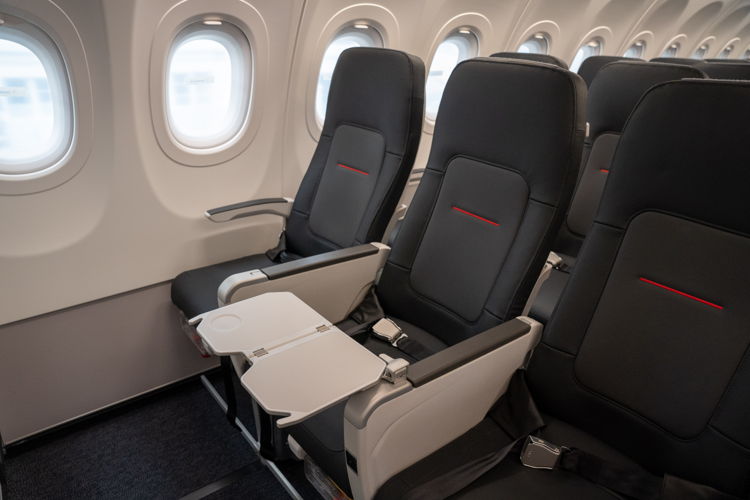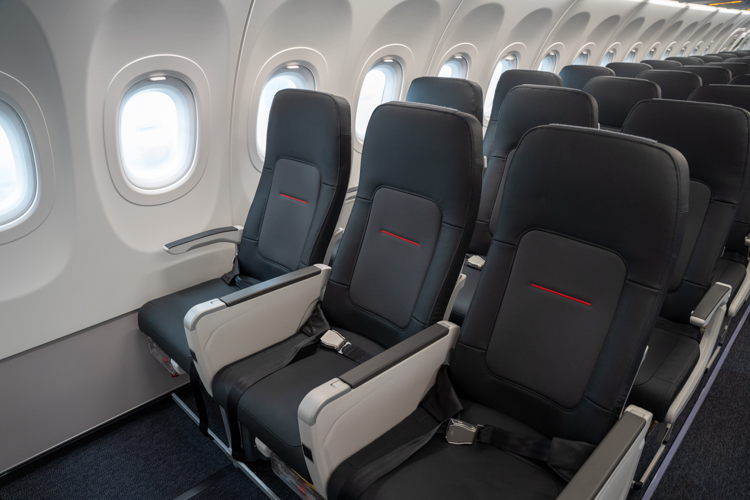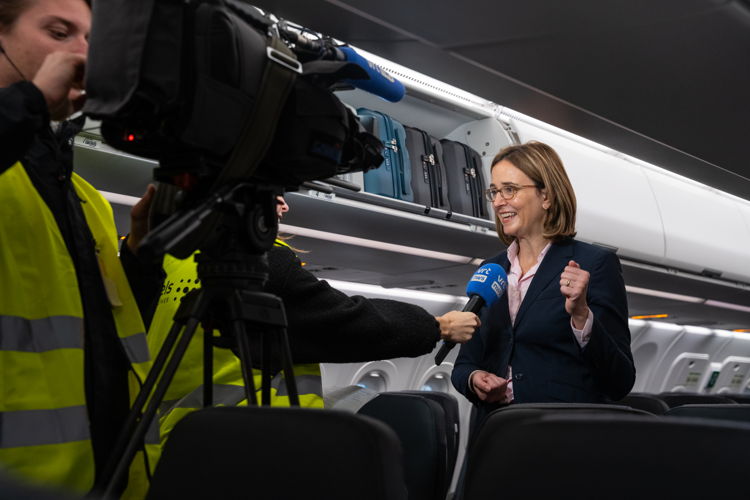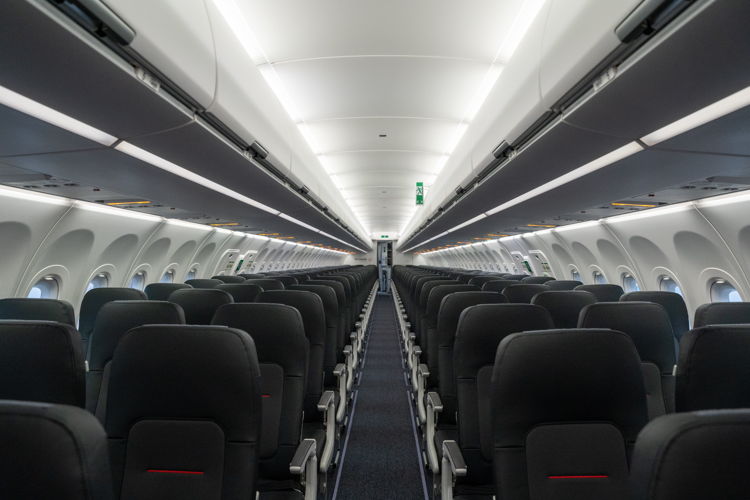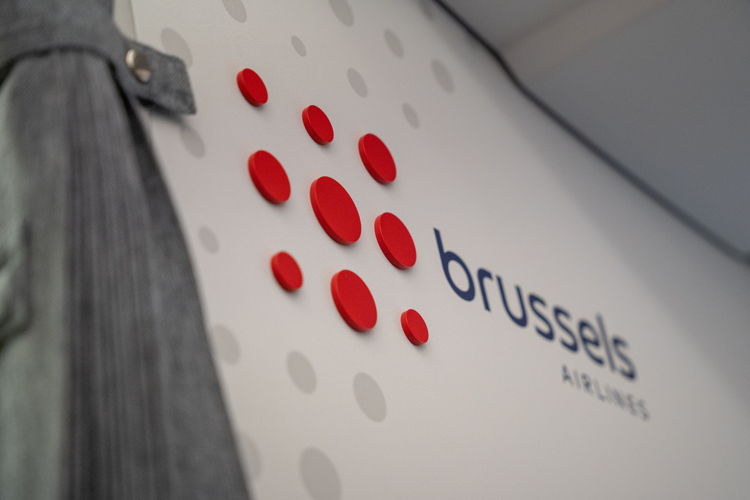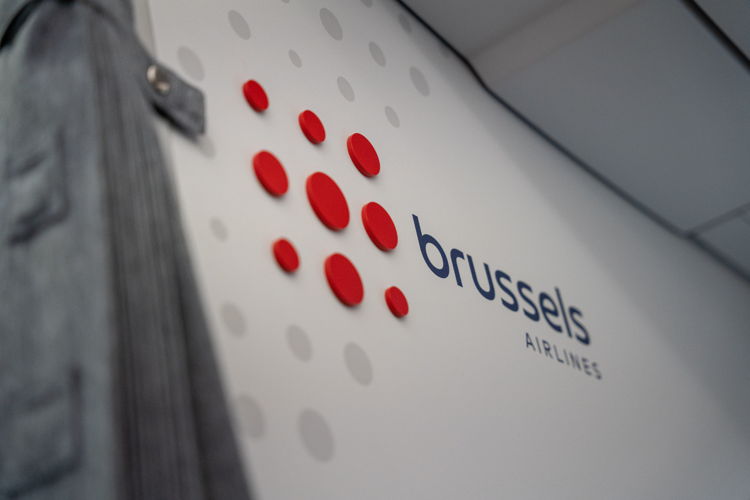A Neo era for Brussels Airlines: brand-new aircraft joins the fleet
For the first time in the history of Brussels Airlines, a factory-fresh aircraft - an A320neo - joins the fleet. This represents the beginning of an exciting new era with growth and focus on sustainability
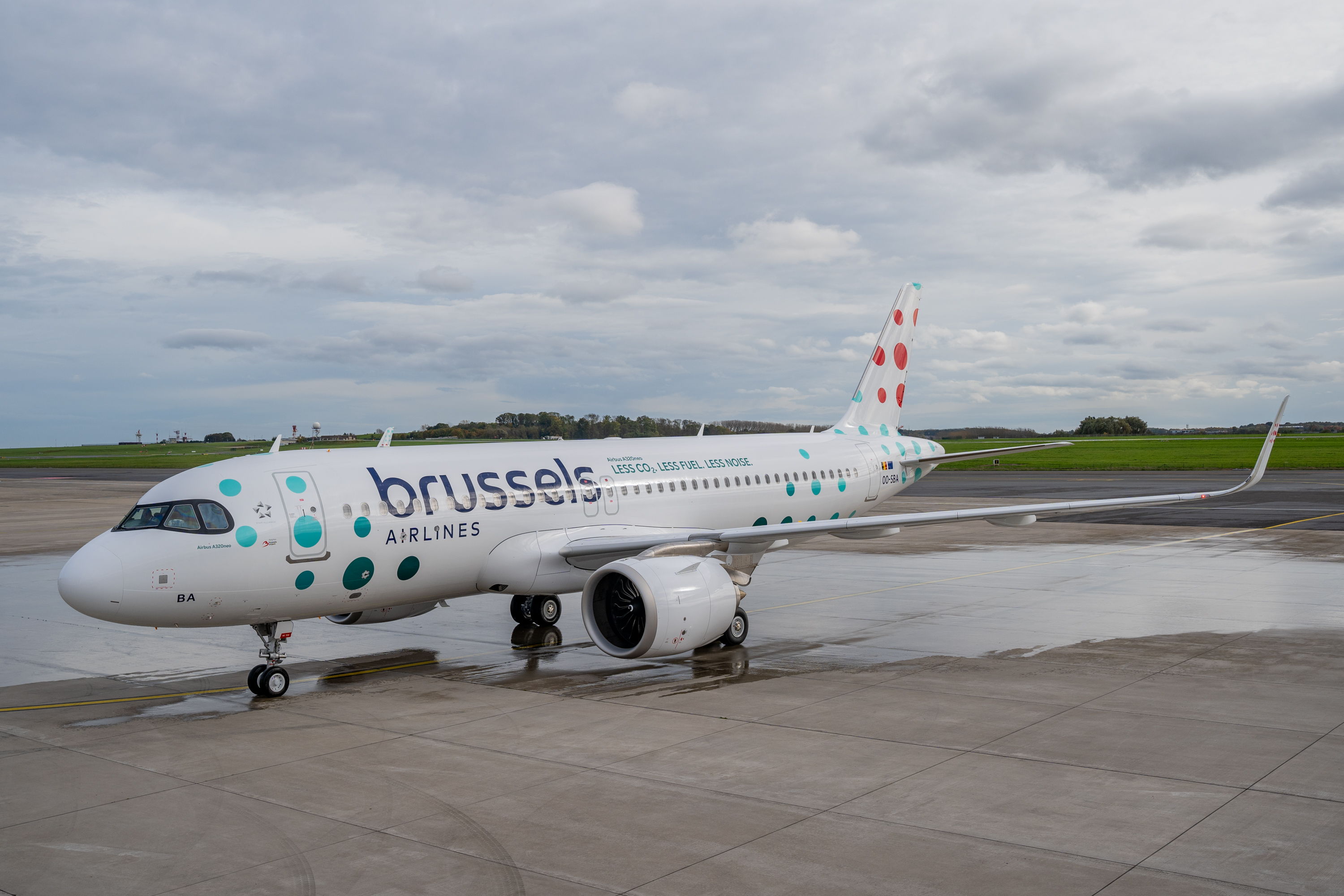
Brussels, November 1st - Brussels Airlines got a brand-new Airbus A320neo delivered from Airbus in Toulouse. The new plane landed for the first time today in its new home base: Brussels Airport. This is the beginning of an exciting new chapter in the history of the airline, as this is the first time for Brussels Airlines to receive planes directly from the manufacturer. The A320neo uses less fuel, produces less CO2-emissions, and represents a 50% noise reduction compared to previous generation aircraft.
A few facts about the A320neo:
- Neo stands for “New Engine Option”
- Up to 20% less fuel consumption than the previous generation aircraft
- The A320neo will replace smaller A319 aircraft in the Brussels Airlines fleet, carrying more passengers with less fuel. Fuel consumption per seat will be reduced by 30%
- The aircraft is equipped with 180 seats
- Up to 50% noise footprint reduction
- A total of 5 A320neo’s will join the Brussels Airlines fleet by the end of 2024
Today OO-SBA landed at Brussels Airport, the first of 5 Airbus 320neo airplanes to join the Brussels Airlines fleet. The maintenance and engineering colleagues of Brussels Airlines will carry out a few remaining upgrades on the aircraft in the coming weeks, after which the first commercial flight will take place.
Focus on sustainability
Brussels Airlines and Lufthansa Group are ambitious in their sustainability targets. The airlines aim to cut their net carbon emissions in half by 2030 compared to 2019 and plan to be carbon neutral by 2050. Several initiatives will contribute to that goal, one decisive lever is fleet renewal.
“It is crucial for us to modernize our fleet to be able to reduce our carbon footprint. The A320neo reduces both noise and CO2 footprint significantly compared to the current generation of A320s. We are happy to get the first brand-new aircraft directly from Airbus in Toulouse, to be followed by 4 more by the end of next year. This is a milestone in our history, so today is really a moment of pride.”
- Dorothea von Boxberg, CEO, Brussels Airlines
The aircraft is equipped with the LEAP-1A engine from CFM International. The new, significantly larger engines can save a further 3,700 tons of carbon equivalents per aircraft and year. In addition to the reduced fuel consumption, the Neo also has a larger range of about 500 kilometers compared to its predecessor. The 2.40-metre-long wing tips, so-called sharklets, will save an additional 800 tons of carbon equivalents per aircraft per year.
Enhanced passenger experience
The new aircraft will enhance passenger experience as it represents a 50% noise reduction, compared to its predecessors. The new baggage compartments have a 40% larger volume and can hold 60% more suitcases, as these can be stowed vertically in the compartments. Another highlight is the new flexible lighting system, which adapts to passengers’ biorhythms depending on the phase of the flight and time of day, illuminating the cabin in either warm orange or cooler blue tones.
“Brussels Airlines has worked hard on becoming profitable. The first brand-new aircraft for our airline shows the continued support and trust of Lufthansa Group in our team. I would like to thank all our team members working on making Brussels Airlines successful – whether they offer excellent customer service or help in making us more effective. We’ve come a long way at Brussels Airlines, and we are happy that we start picking the fruit of our work.”
- Dorothea von Boxberg, CEO, Brussels Airlines
Nico Cardone
